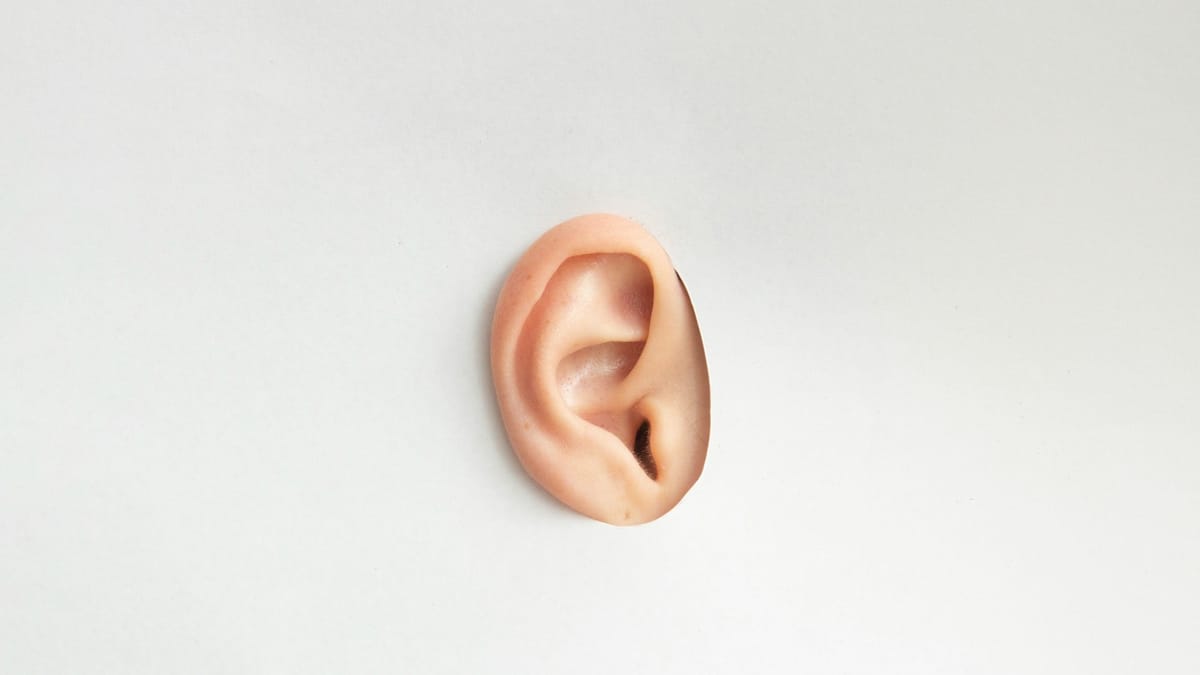Revolutionary Earwax Home Test
The new frontier in cortisol and glucose monitoring

A new study has shown that the build-up of the stress hormone cortisol and glucose can be measured from the oily secretions around your ear canal.
This could open the door to better ways of diagnosing psychiatric conditions including depression, according to lead author Dr Andres Herane-Vives, a psychiatrist at University College London Institute of Cognitive Neuroscience
“Cortisol sampling is notoriously difficult, as levels of the hormone can fluctuate, so a sample might not be an accurate reflection of a person’s chronic cortisol levels. Moreover, sampling methods themselves can induce stress and influence the results. But cortisol levels in earwax appear to be more stable, and with our new device, it’s easy to take a sample and get it tested quickly, cheaply and effectively.”

What’s Cortisol
Cortisol is a hormone made by the two adrenal glands (one is located on each kidney) and it is essential for life. Cortisol helps to maintain blood pressure, immune function and the body's anti-inflammatory processes. Located inside the brain, the pituitary gland regulates the amount of cortisol released by the adrenal glands.
Cortisol is often called the "stress hormone" because of its connection to the stress response, however, cortisol is much more than just a hormone released during stress. Understanding cortisol and its effect on the body will help you balance your hormones and achieve good health.
Low cortisol levels can cause a condition known as primary adrenal insufficiency or Addison disease. While rare, primary adrenal insufficiency is an autoimmune disease that causes damage to the adrenal glands. Symptoms may start slowly, but they can be quite serious. Patients with primary adrenal insufficiency can experience fatigue, muscle loss, weight loss, mood swings, and changes to the skin. It has also been considered as a possible biomarker, or objective biological measure, for depression
When your cortisol levels spike, a rush of amino acids are released from the muscles and glucose is released from the liver into the bloodstream so you’re supplied with the energy needed to deal with the crisis situation at hand. But prolonged elevated cortisol levels can increase anxiety, sap energy, and interfere with your body’s ability to heal.
Our bodies are equipped with natural self-repair mechanisms that fight cancer, prevent infection, repair wounds, and protect us from infectious agents and foreign bodies. But those natural self-repair mechanisms get deactivated when the body is full of stress hormones like cortisol. In the long run, high levels of cortisol suppresses the immune response, which increases the risk of developing all sorts of diseases, including arthritis, cancer, and auto-immune disorders.
Cortisol also plays a role in the regulation of blood sugar levels and how responsive your cells are to the insulin produced by your pancreas. Lots of cortisol for long periods of time makes your body more insulin-resistant, which can lead to diabetes. In addition, it can trigger mental health issues like mood swings, anxiety, and depression.
Cortisol can:
- help the body to manage stress
- convert protein into glucose to boost flagging blood sugar levels
- work in tandem with the hormone insulin to maintain constant blood sugar levels
- reduce inflammation
- contribute to the maintenance of constant blood pressure
- contribute to the workings of the immune system.
Over the longer term, the method could be developed to measure other things like glucose levels or even antibodies against viruses.
Measuring glucose levels
Glucose is a type of sugar you get from foods you eat, and your body uses it for energy. As it travels through your bloodstream to your cells, it's called blood glucose or blood sugar.
Insulin is a hormone that moves glucose from your blood into the cells for energy and storage. People with diabetes have higher-than-normal levels of glucose in their blood. Either they don't have enough insulin to move it through or their cells don't respond to insulin as well as they should.
High blood glucose for a long period of time can damage your kidneys, eyes, and other organs.
Your blood sugar level normally rises after you eat. Then it dips a few hours later as insulin moves glucose into your cells. Between meals, your blood sugar should be less than 100 milligrams per deciliter (mg/dl). This is called your fasting blood sugar level.
Diabetes
In type 2 diabetes, the cells don't respond to insulin-like they should. So the pancreas needs to make more and more insulin to move glucose into the cells. Eventually, the pancreas is damaged and can't make enough insulin to meet the body's needs.
It is estimated globally that one in two adults with type 2 diabetes are undiagnosed, and the situation is likely to have worsened during Covid-19 as people may not have undergone screening.
Cerebro-cardiovascular and renal disease were the major causes of death in diabetic patients; heart disease 19.5%, cerebrovascular disease 16.7% and renal disease 13.1%, Malignant neoplasms 25% of deaths, and cirrhosis of the liver 6.4%.
Diabetes is a major cause of blindness, kidney failure, heart attacks, stroke and lower limb amputation.
The test that uses earwax to measure glucose levels could allow earlier identification of type 2 diabetes and may also have the potential to measure Covid-19 antibodies that accumulate in earwax.
The current gold standard way to test chronic glucose levels requires a blood sample and is not perfectly reliable as it uses blood proteins as a proxy for the actual sugar levels. The earwax test is almost 60% more reliable at measuring chronic glucose levels averaged over a month than an existing gold standard technique
Thanks for reading my blog. Subscribe to get 1 actionable insight to improve your mental or physical health backed by medical research, every Saturday.
https://patents.google.com/patent/WO2019123392A1/en
https://patents.google.com/patent/CA3086330A1/en
https://www.ncbi.nlm.nih.gov/pmc/articles/PMC7644886/
https://www.telegraph.co.uk/health-fitness/body/earwax-secret-stress-indicator-need-know/
https://www.ncbi.nlm.nih.gov/pmc/articles/PMC7764152/
https://www.mdpi.com/2076-3417/11/11/4882
https://www.verywellhealth.com/earwax-measure-cortisol-levels-5088367




